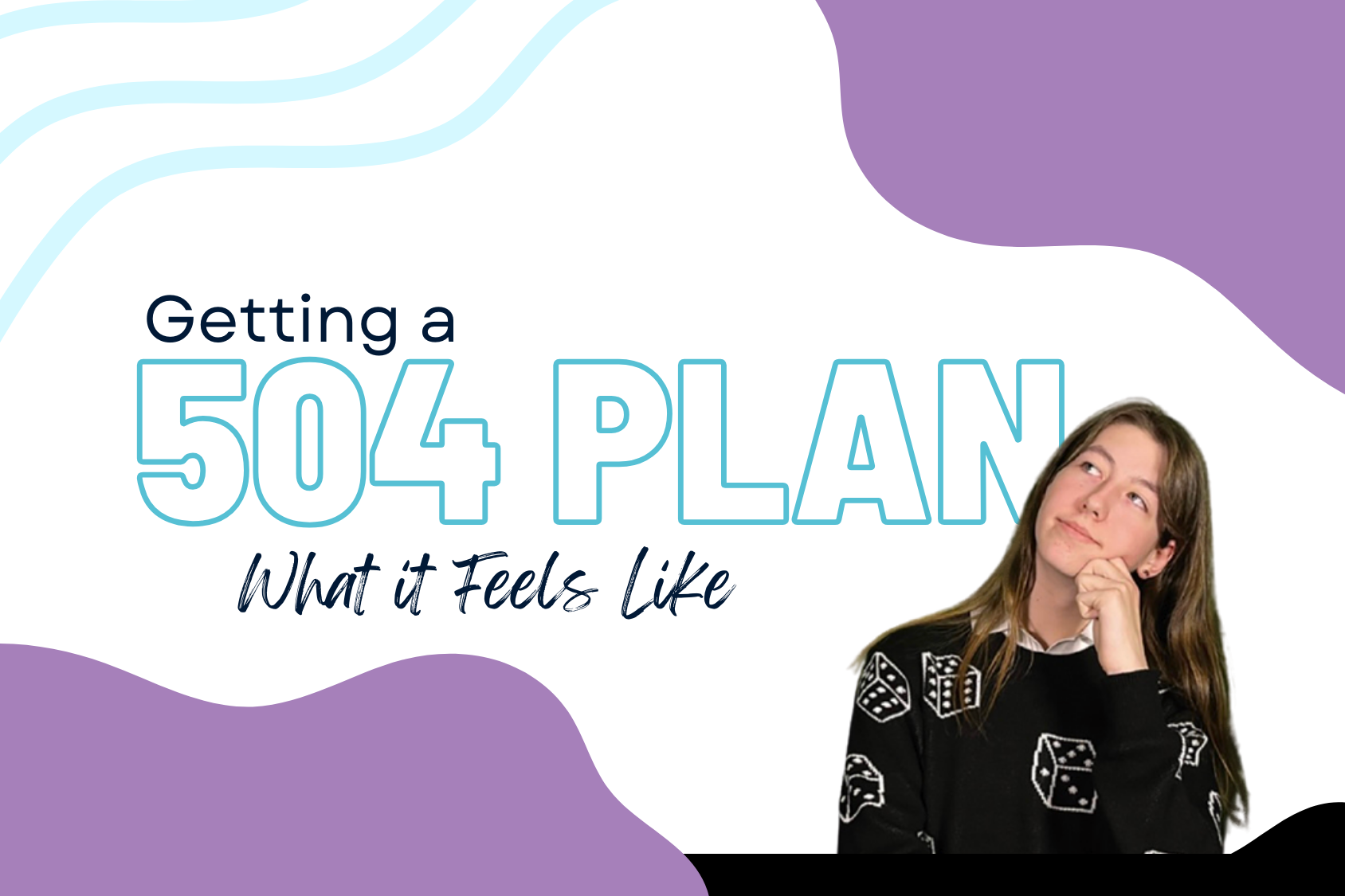
What it feels like: getting a 504 plan
The goal of this article is to give a reader more of an insight into what it is like to get a 504 plan and be a person with a disability at West. For a more informational article about the process, go here.
Everyone’s brain is different. No one learns the same, no one thinks the same, no one acts the same—that’s what keeps that world interesting.
For some people, the typical classroom experience isn’t optimal for their learning. One thing that helps accommodate these differences is Section 504 of the Rehabilitation Act of 1973.
After being in place for over 50 years, Section 504 is being threatened. Joe Biden added gender dysphoria as a protected disability under the act, which angered many conservatives.
In response, Texas filed a lawsuit, claiming not only that “gender dysphoria” doesn’t classify as a disability but that the act itself was unconstitutional.
16 other states also participated in filing this lawsuit, including Iowa. Iowa Attorney General Brenna Bird was one of the legislators who signed the lawsuit.
In a status update released last week, Bird claimed that she didn’t intend for Section 504 to be declared unconstitutional but that Biden “failed Iowa kids” by forcing “transgender ideologies” into schools.
Not every condition that can qualify a person for accommodations under Section 504 is necessarily a disability. For example, students can get accommodations for things like anxiety and depression, which generally are not viewed as disabilities. Disability is a spectrum — different conditions affect people in different ways and to different severities.
Accommodations under Section 504 can vary widely, and the process for getting them is a little different for everyone. Sometimes the process is easy because the need for accommodations is clear, but in more nuanced situations, students have to fight harder for their needs to be recognized.
This is especially common among students with lower support needs, meaning that they need less supports to succeed. A similar term for this would be “high functioning,” but that term can feel invalidating, for the needs of people who require less help to be able to succeed equally to their peers are valid and should be met.
Below, West High students tell their experiences with disability, neurological disorders and the importance of the accommodations provided to them by Section 504.
The following sections are written from the first-person perspectives of the interviewed students.
I’ve always wondered, even when I was little.
When I was eight or nine, I found this autistic YouTuber and related a lot to his story. It just lived in the back of my mind for a few years, the thought of, “Oh, maybe I’m autistic.”
It wasn’t until my freshman year that I started to realize something was going on; I definitely needed to get a diagnosis. I no longer wanted to go on without one.
Before that, around the age of 10, I also started to feel the symptoms of my obsessive-compulsive disorder. And then, starting freshman year, with the new social environment and everything, the anxiety started coming in as well; I felt like I didn’t fit in as well as other people, like there was something missing.
The first medical professional I talked to about getting diagnosed was my psychiatrist, who basically told me that I wasn’t autistic because “you have friends.” Since she wasn’t very helpful, I talked to my therapist, and she listened and agreed with me.
My therapist was able to refer me to a psychology place, and I had my initial consultation in June. That meeting was pretty much just talking about my own experiences, so they knew what they wanted to test me for. I went back a couple of weeks later for the testing, which took about three hours, and then a couple more weeks later, they went over the results with me.
That meeting was when they told me I had autism, OCD and anxiety. Having a formal diagnosis has helped me feel a bit better about myself. There’s all these insecurities I’ve had, and now I can look back and be like, “Oh, that was just because I’m autistic, and that’s okay.”
A couple of months after that, I decided to pursue getting accommodations at school. I emailed my counselor around November, and she said she’d like to meet with me. We set up a time, and she said that she had to ask for feedback from my teachers.
I was worried that I wasn’t going to be able to get accommodations. My grades were fine, and all my teachers said I was fine too, especially my French teacher, who said he was shocked that I might need accommodations because I’m like his perfect student.
I was worried that I would go ignored because my support needs aren’t as visible on the outside as other people, and they would just ignore them.
Luckily, my counselor recognized that I might be struggling despite good grades and set up a meeting with me and my parents anyway. I was able to get a 504, which has been really nice, especially with the phone ban, because I can still have my headphones to help reduce overstimulation.
Getting a 504 has helped me feel more supported at school; it’s good to know that I have resources there for me if I need them. People at school might not understand that you have struggles if they can’t necessarily be seen, and accommodations are there to help you through things that other people don’t struggle with as much.
The first time I realized that something was up was in second grade. I was taking this standardized test, and my mind just kept wandering. I remember everyone else was able to finish it super quickly, but it took me the whole day — it was humiliating.
That was the first sign for my mom, too. I don’t remember much, but she decided to get me diagnosed with Attention-Deficit/Hyperactivity Disorder. Getting the diagnosis itself wasn’t easy; the scheduling was difficult, and things like that are expensive. We were lucky enough to have health insurance that covered it all.
After I had the formal diagnosis, my mom went back to the school to request accommodations, and they said no. The reasoning was that I had to be observed more to get more evidence to support that there was a need for them. That school generally didn’t have many resources, so maybe that was a part of the hesitance.
It was years ago, but I still remember having to spend hours constantly working on math homework. I understood it all, but my mind would just keep wandering, and it was impossible to focus. It was frustrating for my mom, too, all the times that help was denied. We had medical professionals saying I needed accommodations, and they still were saying no.
We were lucky enough to have the resources to threaten the school legally, which seemed to get them moving. I’m now able to have a quiet testing environment and extended time on them.
The accommodations have been a big help, but there are other things too. I was able to start taking medication when I got diagnosed, and that’s what keeps me generally focused throughout the day; I’m able to get distracted, but it’s much less often.
There’s also a recognition part of it — it’s mostly boys with ADHD that get noticed (around 15% of boys are diagnosed versus the 8% of girls that are).
It’s so important that people are able to get accommodations if they need them — regardless of how they present. For me, it’s taken so much of the pressure off. I know that they are there if I need them, even if I don’t always use them.
I’m currently studying for the SAT, and being able to have extended time has made a huge difference. With the time usually allotted, I wouldn’t be able to finish half of the questions, but I recently took the PSAT and was able to finish almost all of the questions.
My accommodations are a big part of how I’m able to succeed as a student today. I’ve gone from struggling with time limits and distractions in elementary school to a straight-A student taking AP classes in high school. And while accommodations are not the sole reason for that, they have been a vital part of my journey.
I’ve been diagnosed with ADHD since third grade. I was a great student academically, but there were these things behavior wise. I kept getting in trouble for talking too much, getting distracted, reading under my desk — that sort of thing.
My parents decided to get me diagnosed after that, and it was nice to know that it wasn’t entirely my fault. I wasn’t necessarily doing anything wrong; I just had this thing that I couldn’t change.
I didn’t start looking into getting accommodations until the middle of last year. I was doing worse than I usually would in my classes, so I talked to my therapist and psychiatrist and we started the process of getting a 504.
The school then told me what accommodations I would have access to, and, to be honest, it wasn’t really what I was hoping for. They told me that, just because I have an ADHD diagnosis, that doesn’t mean I can have all the accommodations that could possibly support a person with ADHD.
For me, that meant that I couldn’t get some of the accommodations I wanted because of my grades. I used to be able to get As in my classes, but I’ve started to get Bs. But since a B is still considered above average, my grade drop isn’t enough to qualify because I’m not considered to be doing poorly, but normal.
So that was really frustrating. I was really hoping for more time on tests because there’ve been situations where I’m running out of time. I was also hoping for a private testing location, because in classrooms, there’s so many things that can distract me: if it’s too hot, someone’s chair squeaking, etc.
I was able to get more time on homework because I’m not very good at turning in assignments punctually. I also have the ability to get large projects broken up into smaller assignments if I need. I don’t use those accommodations very often, but they are nice to have.
Over the past few years, as I’ve started to struggle more in school, I’ve been looking into anxiety and autism. I’ve recently gone through the diagnostic process again to hopefully be able to get a diagnosis for those two things.
It’s a long process; you have to fill out a lot of forms and they ask you some weird questions that I feel I don’t have any perspective on, like, “Do you do something that is odd?” for example. The whole thing takes more than five hours.
Through getting those diagnoses, I hope to qualify for more accommodations. I think the next step would be talking to my counselor and seeing what I could qualify for before starting the process again.
Something I’ve realized through this process is that teachers do want to help you. Even without a 504 plan, going up to your teachers and telling them what you struggle with can be really beneficial — oftentimes they will try to help you how they can.
It’s incredibly important to recognize neurodivergent people with lower support needs, because there are plenty of people, some with 504s and some without, who go through their lives trying twice as hard as everyone else because they think that’s how hard they’re supposed to try or feeling bad because they’re doing worse than their peers even though they put in the same amount of effort. I think that if the way they are treated doesn’t change, plenty of neurodivergent people will just continue feeling bad about themselves because they don’t always succeed as easily.
It took me years to figure everything out. Scratch that, I still don’t have everything figured out. Sometimes my brain feels like a puzzle, I find the pieces, but then I have to figure out how they all fit together to form what makes me, me.
I think the first puzzle piece was realizing that I had an anxiety disorder, that all the worries that I had swirling in my mind every minute of every day, weren’t normal. That all started around COVID, and going back to school was another turning point as well.
Going back to school, I felt like everyone got some message that I didn’t. I still dressed similarly to how I did in elementary school, and everyone had seemed to “grow up” without me. After a while I figured out how to navigate the social landscape, or minefield, of junior high. I started keeping track of all the “rules”: pretend you know what that means, nod and laugh along, don’t wear that shirt because “it makes you look like a Texas mom,” etc.
Fast forward two years later, end of sophomore year. I’ve just spent months trying to figure out a medication and dosage that worked for my anxiety, stressed about school and trying to figure out what I want to do with my life. I kept adding things to my plate, watching my classmates do it too and thinking, “If they can, why can’t I?”
All the overcommitments caught up with me, my mind became an ongoing to-do list, reminding me of everything I needed to be doing a given moment so I wouldn’t forget. It was in a therapy appointment around that time that my therapist asked me if I had ever been tested for ADHD.
It was later, after I had scheduled an appointment with a psychologist, that I realized I might be autistic. I don’t remember how it started, but I ended up going down an internet rabbit hole of articles, quizzes and YouTube videos about autistic people. I realized something I think the world still needs to learn: autistic people don’t all present the same. There is no one way to be autistic, and there are many factors that affect how a person presents.
When I mentioned it to people, my parents and my doctor, I was met with skepticism and denials; but when I brought it up to my therapist, she said that it wasn’t such a reach.
So, after going through the diagnostic process, I ended up with an autism diagnosis and an “unspecified” ADHD diagnosis as well.
Getting those diagnoses made me realize that I was struggling with some things that other people weren’t. In math class, I kept trying to block out all of the extra noises in the room: the guy watching TikTok behind me, the tapping of a pencil, quiet conversations throughout the room.
It took months for me to actually decide to advocate for accommodations. Even though in my diagnosis it said that they would be helpful, I couldn’t get over the imposter syndrome of not being “disabled enough” to need help.
When I finally decided to talk to my counselor, I was told I probably wouldn’t qualify because of my strong grades. We decided to go through the teacher feedback process anyway, and because the feedback was so positive, my request was denied.
I was lucky enough to get informal accommodations. My counselor put in a tag to Infinite Campus so it would be easier for me to advocate for myself if I was struggling, and sent an email to all my teachers saying I had permission to take tests in SPACE and wear an earbud in class if I was overstimulated.
That was helpful for a while, but then came the phone policy, and with it, the system I had finally figured out. The thing I was most concerned about was the ban on earbuds. I relied so heavily on being able to block out all the extra noises to be able to function.
And I know I wasn’t alone in this — there are many students who struggle with overstimulation that don’t have accommodations. For me, this was the sign that I needed to try to get accommodations again.
So I met with my counselor, and she told me there were new guidelines and if I qualified, I could have wired earbuds and earplugs in class. I knew immediately that that wouldn’t work for me, all I wanted was my Bluetooth earbuds that have a very effective noise-cancelling function.
Throughout multiple conversations with my counselor, I was able to make the argument that the standard accommodations for overstimulation wouldn’t work for me and I knew my parents would back me up if there was an extra meeting required to allow me to use Bluetooth.
After finalizing the accommodations I wanted, my counselor sent out the teacher feedback forms again. It was a little scary, I felt I really needed the accommodations this time, and I feared the repeat denial.
I think this is something so many people with lower support needs go through. Advocating for yourself is hard, especially when other people aren’t able to see you struggling. You question yourself: am I really struggling or am I making it up because I want to be ‘special’? And the truth is, yes, people struggle even if you don’t see it. Yes, sometimes people need some extra help even though they have good grades, because you can’t always see how hard they’re kicking under water.
On a Friday morning a few weeks ago I got the good news: I was able to qualify for accommodations. It’s only been about two weeks, but having that extra support there has been so comforting. I am now able to wear my earbuds in class when I need to, have preferential seating and a quiet testing environment.
To other people that have gone, or are going through, a similar experience I say this: your struggles are valid. No matter what anyone says, you deserve to have the neurotypical world adapt just a little to make space for you. Sometimes it feels like the world isn’t built for you, so change it.
-
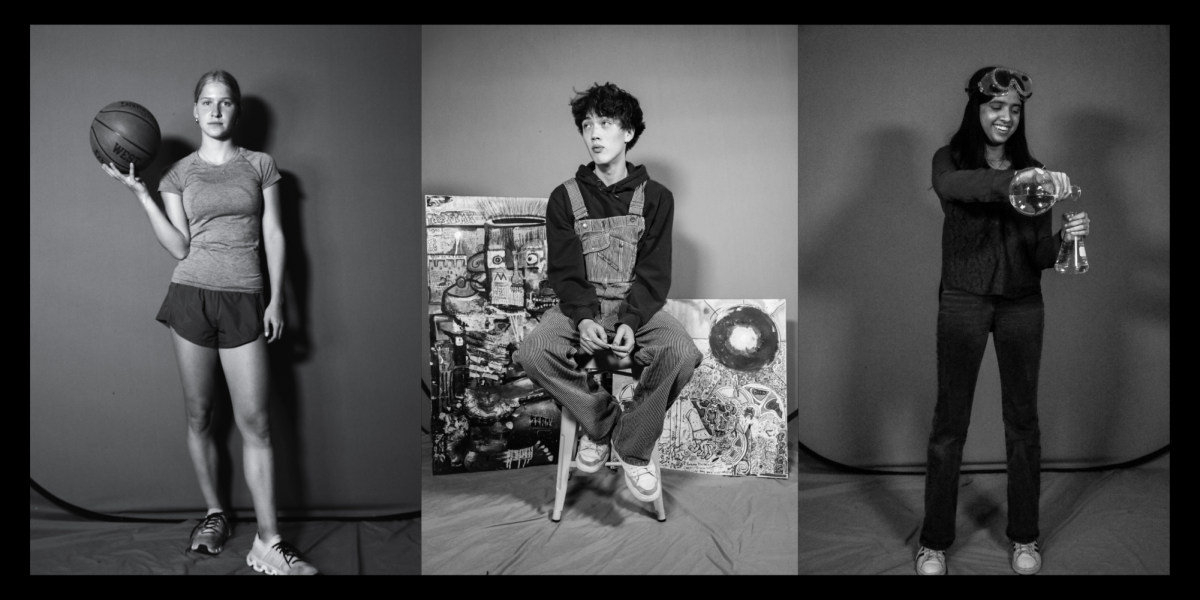 FeatureWSS 2025 People of the Year
FeatureWSS 2025 People of the Year -
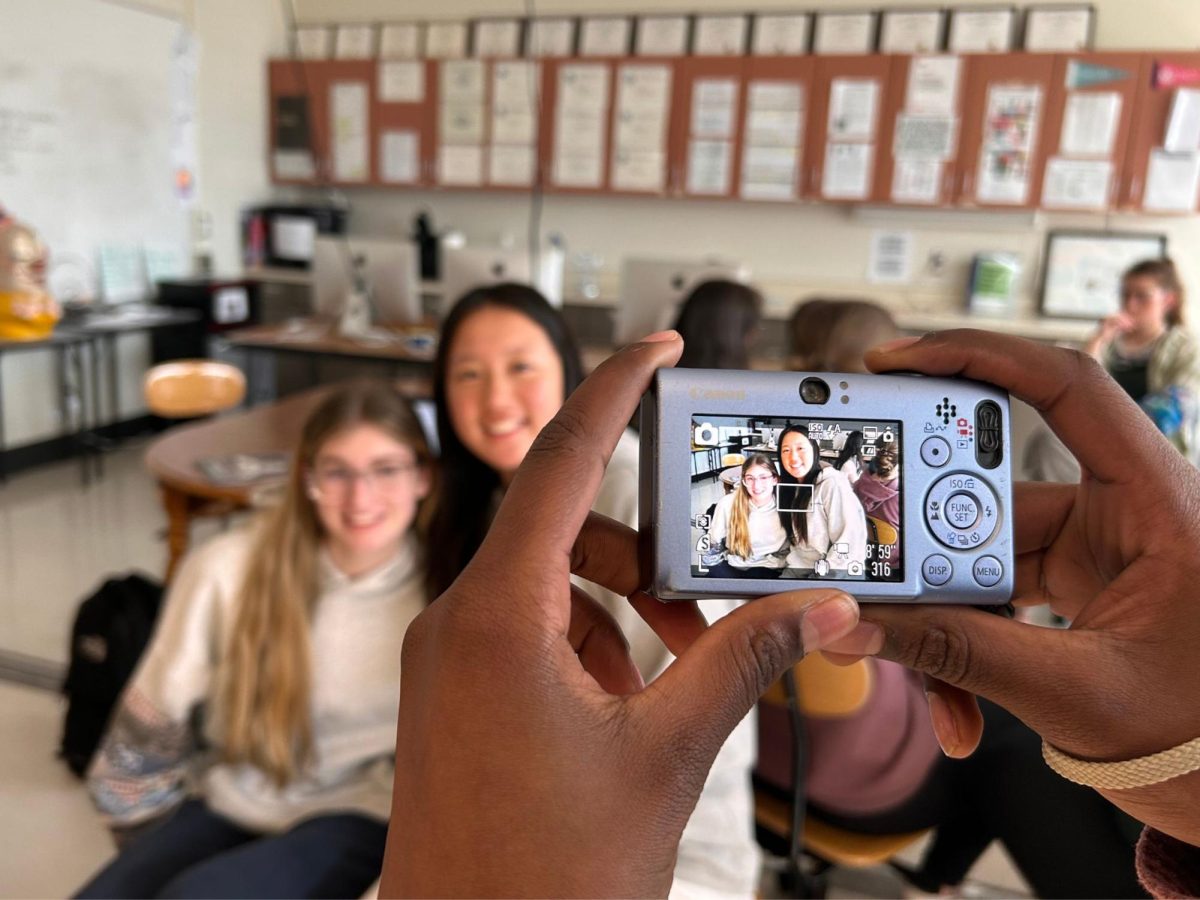 FeatureGone digital: the return of digital cameras
FeatureGone digital: the return of digital cameras -
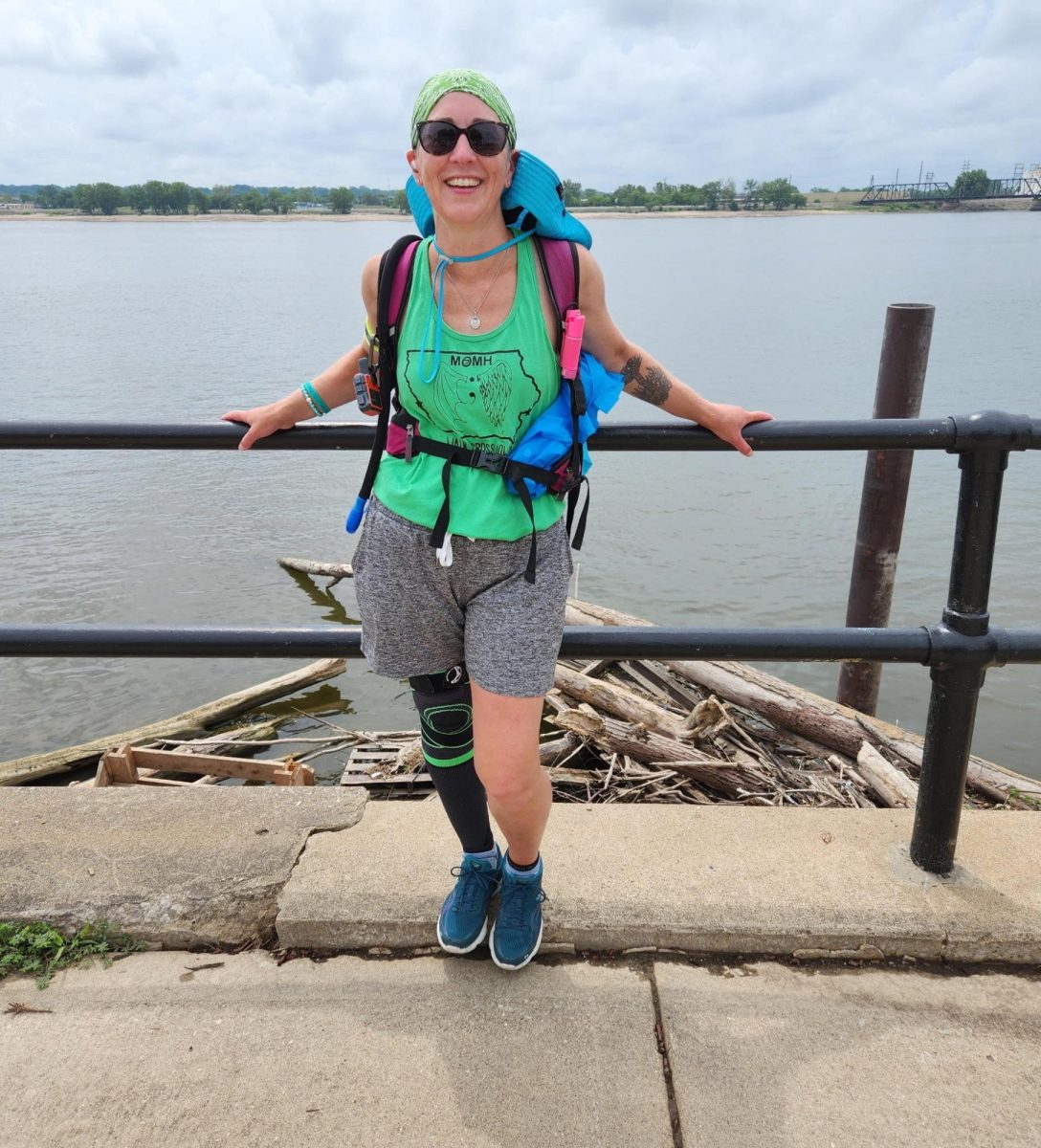 FeatureMiles for mental health
FeatureMiles for mental health -
 FeatureService and sacrifice
FeatureService and sacrifice -
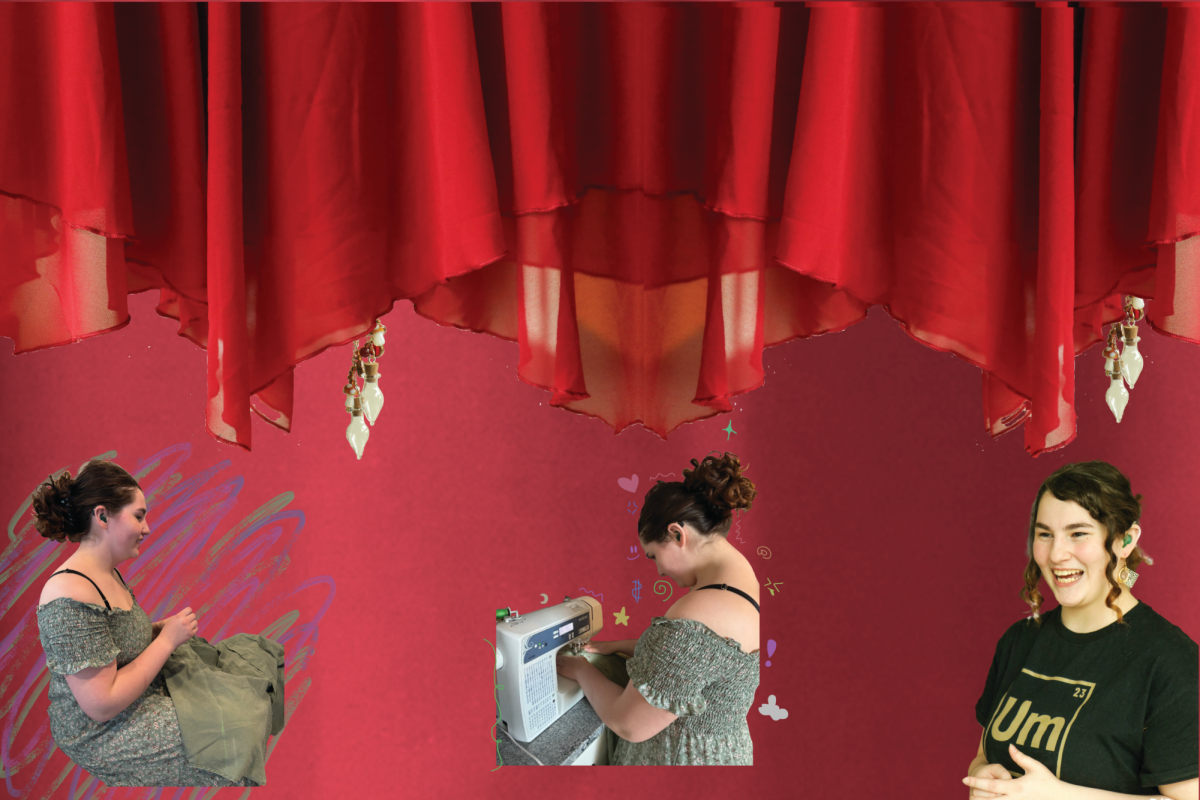 FeatureStitching sustainably
FeatureStitching sustainably -
 FeatureSenior futures
FeatureSenior futures -
 FeatureBrad Stiles: championship caliber coaching
FeatureBrad Stiles: championship caliber coaching -
 FeatureBack in time
FeatureBack in time -
 FeatureDriven, dangerous and distracted
FeatureDriven, dangerous and distracted -
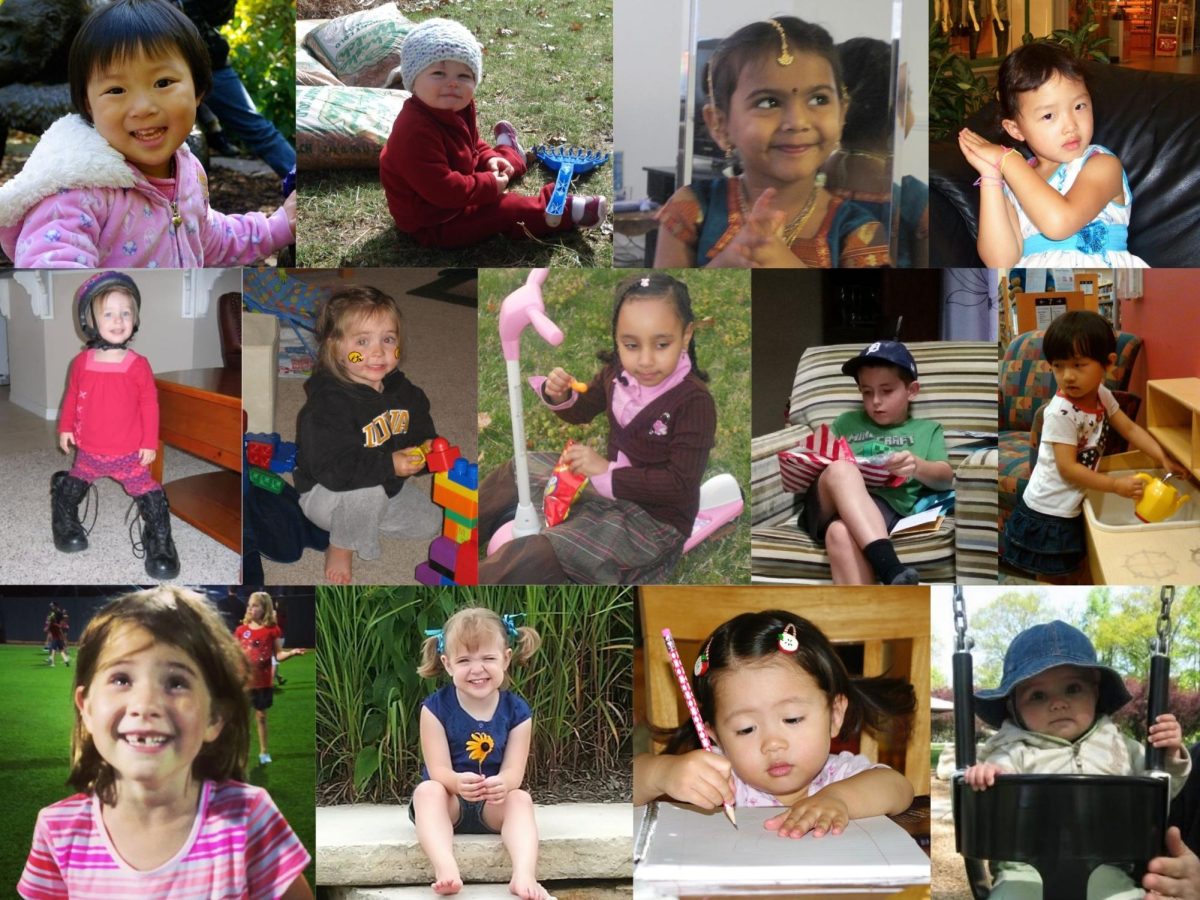 FeatureClass of 2025 senior columns
FeatureClass of 2025 senior columns -
 ShowcaseTop five sports moments of 2024-25
ShowcaseTop five sports moments of 2024-25 -
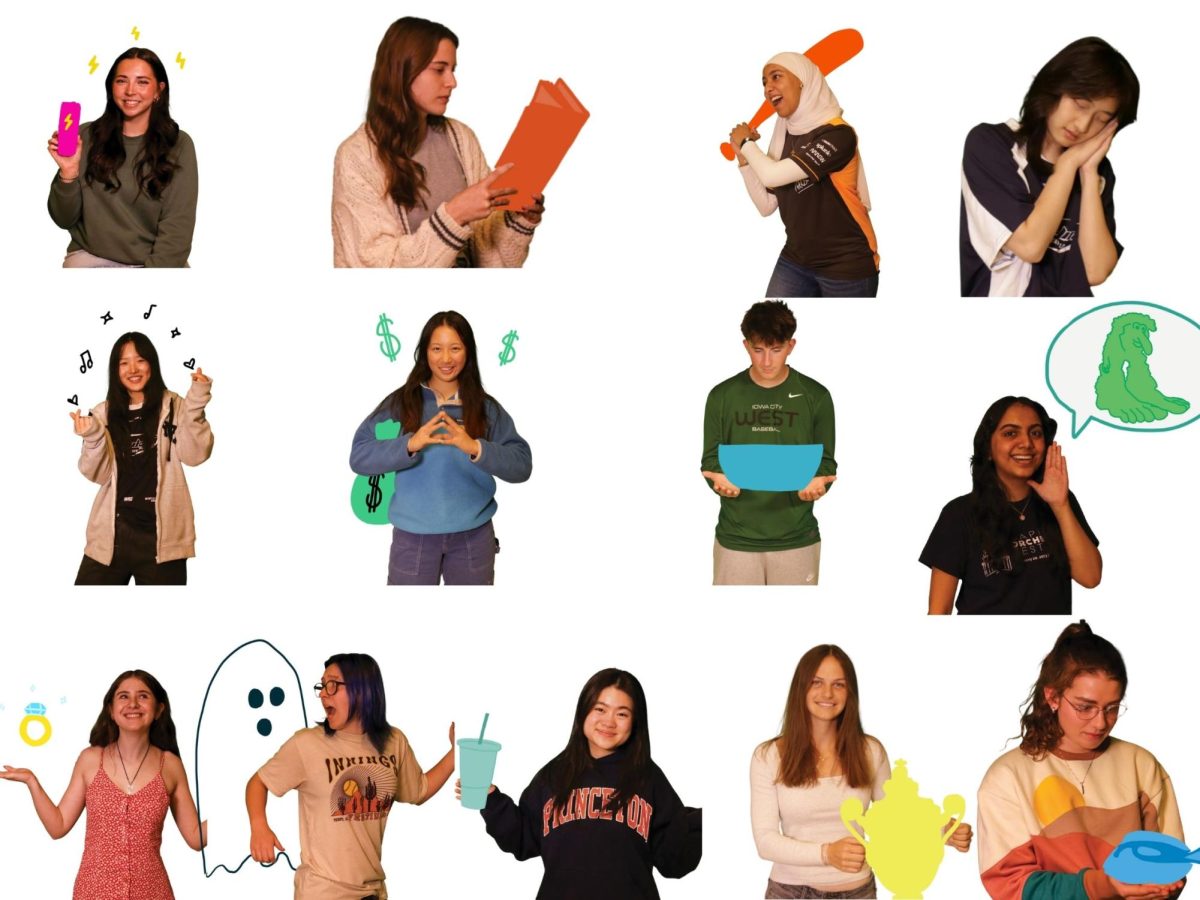 ShowcaseWSS senior staff superlatives
ShowcaseWSS senior staff superlatives -
ShowcaseA year to remember: 2024-2025 in focus
-
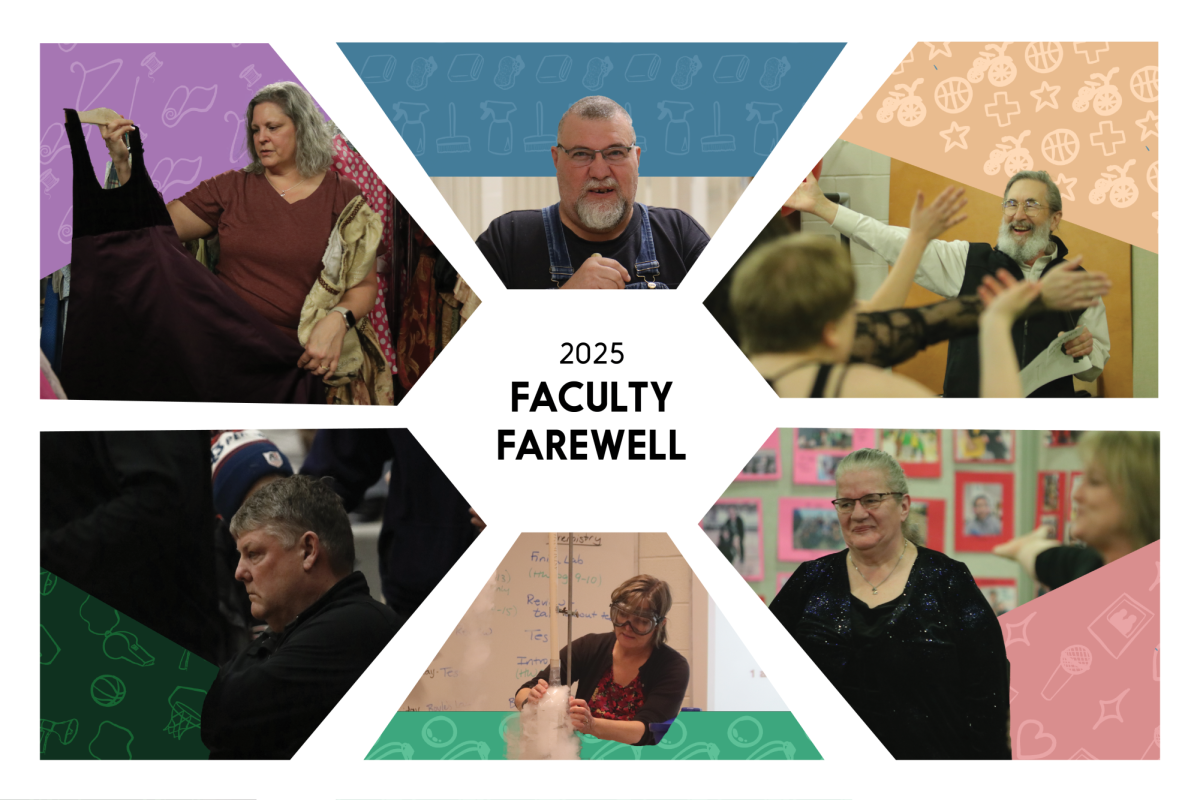 Showcase2025 Faculty Farewell
Showcase2025 Faculty Farewell -
 ShowcaseTraci Burns: a story of resilience
ShowcaseTraci Burns: a story of resilience -
 ShowcaseWest High holds senior recognition awards night
ShowcaseWest High holds senior recognition awards night -
 ShowcaseSeeds for change
ShowcaseSeeds for change -
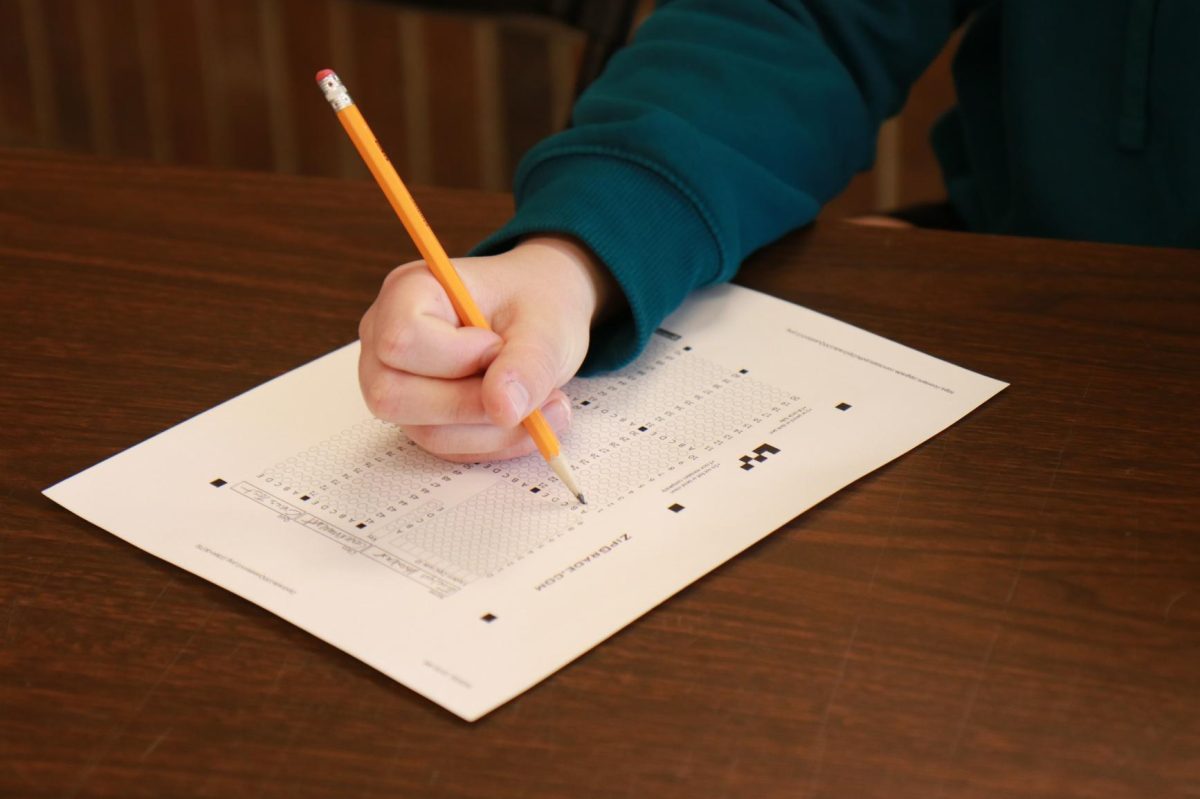 ShowcaseIowa bill would require high school students to pass a citizenship test to graduate
ShowcaseIowa bill would require high school students to pass a citizenship test to graduate -
 ShowcaseTheatre West hosts annual Drama Awards, announces shows for next year
ShowcaseTheatre West hosts annual Drama Awards, announces shows for next year -
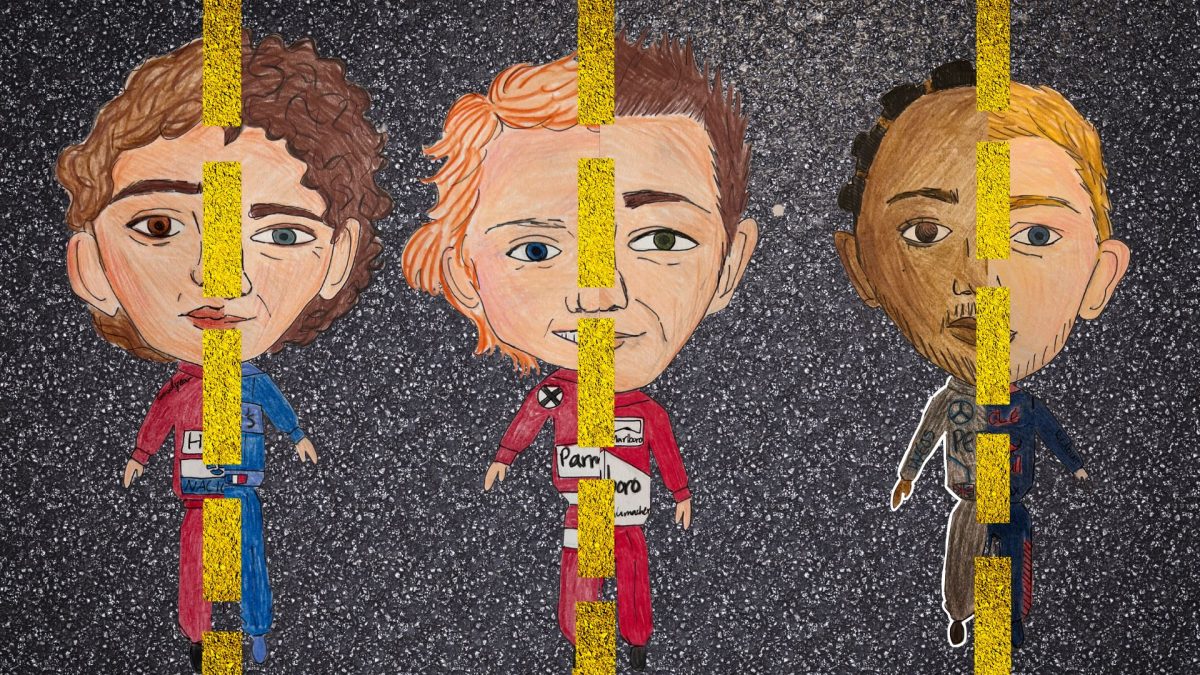 ShowcaseThe icons of Formula 1
ShowcaseThe icons of Formula 1 -
 What It Feels LikeWhat it feels like: winning the Paul Engle Prize
What It Feels LikeWhat it feels like: winning the Paul Engle Prize -
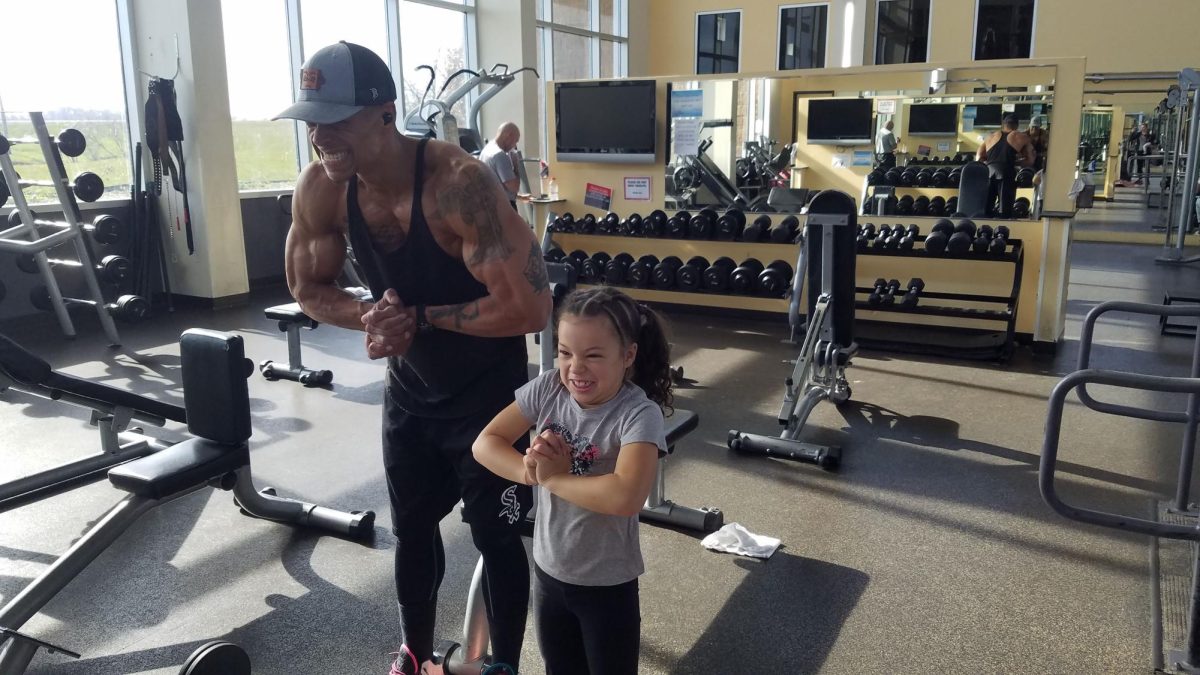 What It Feels LikeWhat it feels like: competing in professional bodybuilding
What It Feels LikeWhat it feels like: competing in professional bodybuilding -
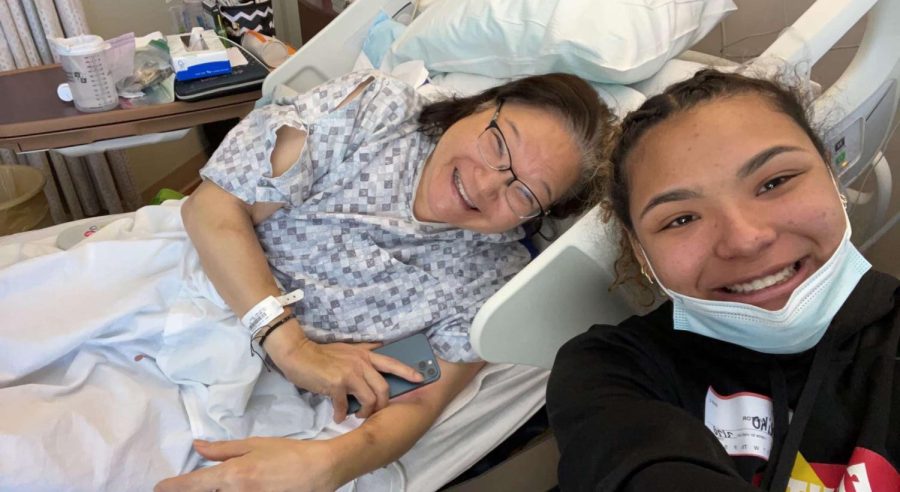 What It Feels LikeWhat it feels like: finding out your mom has cancer
What It Feels LikeWhat it feels like: finding out your mom has cancer -
 What It Feels LikeWhat It Feels Like: Earning an Associate's Degree in high school
What It Feels LikeWhat It Feels Like: Earning an Associate's Degree in high school -
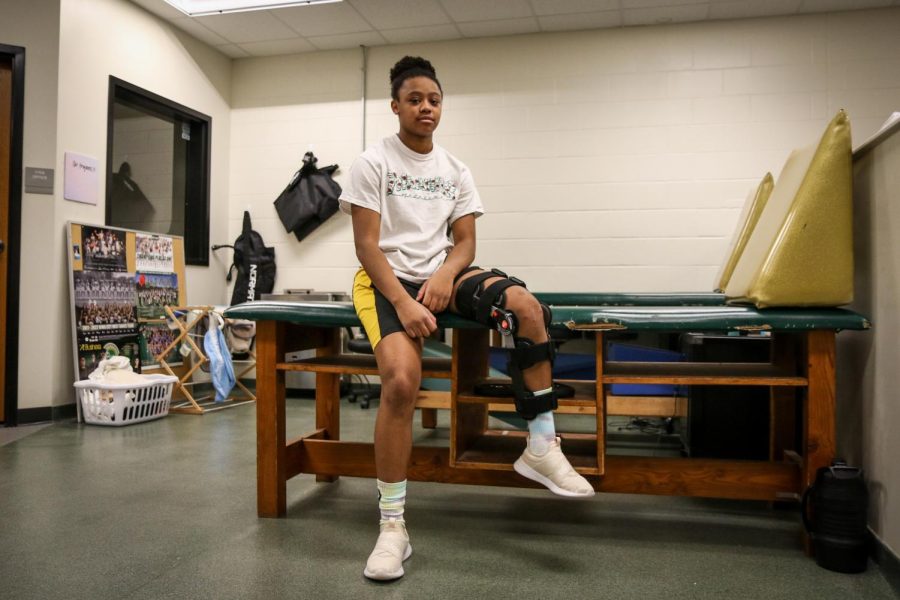 What It Feels LikeWhat It Feels Like: Tearing your ACL
What It Feels LikeWhat It Feels Like: Tearing your ACL -
 What It Feels LikeWhat It Feels Like: Leading a protest
What It Feels LikeWhat It Feels Like: Leading a protest

Your donation will support the student journalists of West High School. Your contribution will allow us to purchase Scholarship Yearbooks, newsroom equipment and cover our annual website hosting costs.


